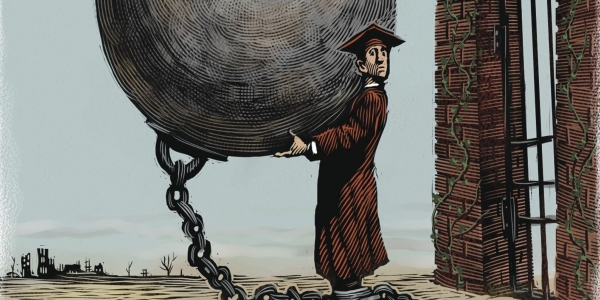The Burdens of Working-Class Youth
Posted by

Tim Foley for The Chronicle
By Jennifer M. Silva
The Chronicle of Higher Education
Brandon, a 34-year-old black man from Richmond, Va., labels himself "a cautionary tale." Growing up in the shadow of a university where both his parents worked in maintenance, he was told from an early age that education was the path to the "land of milk and honey." An eager and hard-working student, Brandon earned a spot at a private university in the Southeast—finally, his childhood dream of building spaceships seemed to be coming true. He shrugged off his nervousness about borrowing tens of thousands of dollars in loans, joking: "Hey, if I owe you five dollars, that’s my problem, but if I owe you $50,000, that’s your problem."
But his light-hearted banter belies the long train of obstacles and uncertainties that have followed him at every turn. Unable to pass calculus or physics, Brandon switched his major from engineering to criminal justice. He applied to several police departments upon graduation, but he didn’t land a job.
With "two dreams deferred," Brandon took a job at a women’s-clothing chain, hoping it would be temporary. Eleven years later, he’s still there, unloading, steaming, pressing, and pricing garments on the night shift. When his loans came out of deferment, he couldn’t afford the monthly payments and decided to get a master’s degree in psychology—partly to increase his chances of getting a good job, and partly, he admitted, to put his loans back in deferment. He finally earned a master’s degree, paid for with more loans from "that mean lady, Sallie Mae."
So far, Brandon has not found a job that will pay him enough to cover his monthly loan and living
